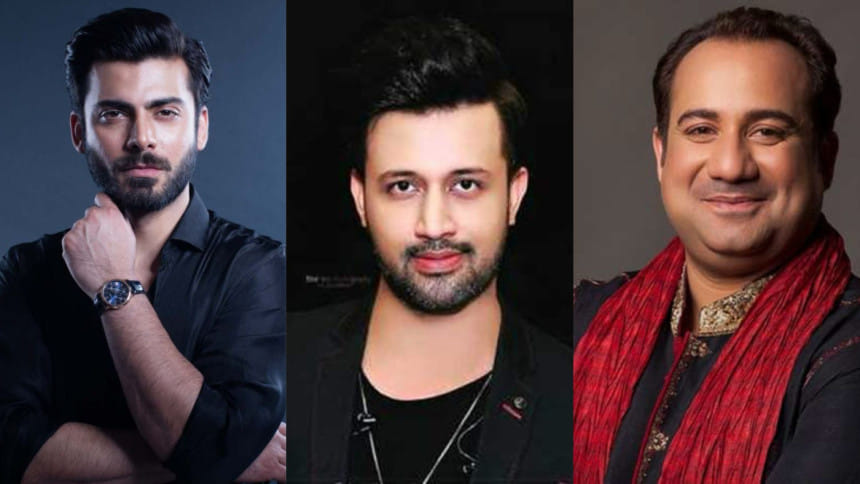Fawad Khan, Atif Aslam, Rahat Fateh Ali Khan’s Instagram accounts blocked in India

In a significant digital clampdown, the Instagram accounts of popular Pakistani artistes Fawad Khan, Atif Aslam, and Rahat Fateh Ali Khan have been blocked in India. The restriction, which went into effect yesterday, comes in the wake of escalating tensions between India and Pakistan following the recent terror attack in Jammu and Kashmir's Pahalgam that left 26 people dead.
This development follows the earlier blocking of Instagram accounts belonging to Hania Aamir, Mahira Khan, and Ali Zafar. Several other Pakistani entertainers, including Sanam Saeed, Bilal Abbas, Iqra Aziz, Imran Abbas, and Sajal Aly, have also had their profiles withheld in India.
Upon attempting to access the accounts of Fawad, Atif, or Rahat, Indian users are met with a message from Instagram stating, "Account not available in India. This is because we complied with a legal request to restrict this content."
The social media restrictions come shortly after the Indian government moved to ban 16 Pakistani YouTube channels—among them leading news outlets such as Dawn News, Samaa TV, ARY News, and Geo News.
The bans were reportedly issued for promoting provocative content, misinformation, and communally sensitive narratives targeting India.
Meanwhile, the release of the upcoming film "Abir Gulaal", starring Fawad Khan alongside Indian actress Vaani Kapoor, has been put on hold. Originally slated for release on May 9, the film's Indian distribution has been stalled.
"The movie 'Abir Gulaal', starring Pakistani actor Fawad Khan, will not be allowed to release in India," a source confirmed to PTI.
The tensions stem from a tragic incident on April 22, when heavily armed militants attacked tourists at Baisaran meadow near Pahalgam.
The ambush resulted in the deaths of 26 individuals—25 of whom were tourists—in what has been described as one of the deadliest attacks in the region since the 2008 Mumbai terror assaults.

 For all latest news, follow The Daily Star's Google News channel.
For all latest news, follow The Daily Star's Google News channel. 









Comments